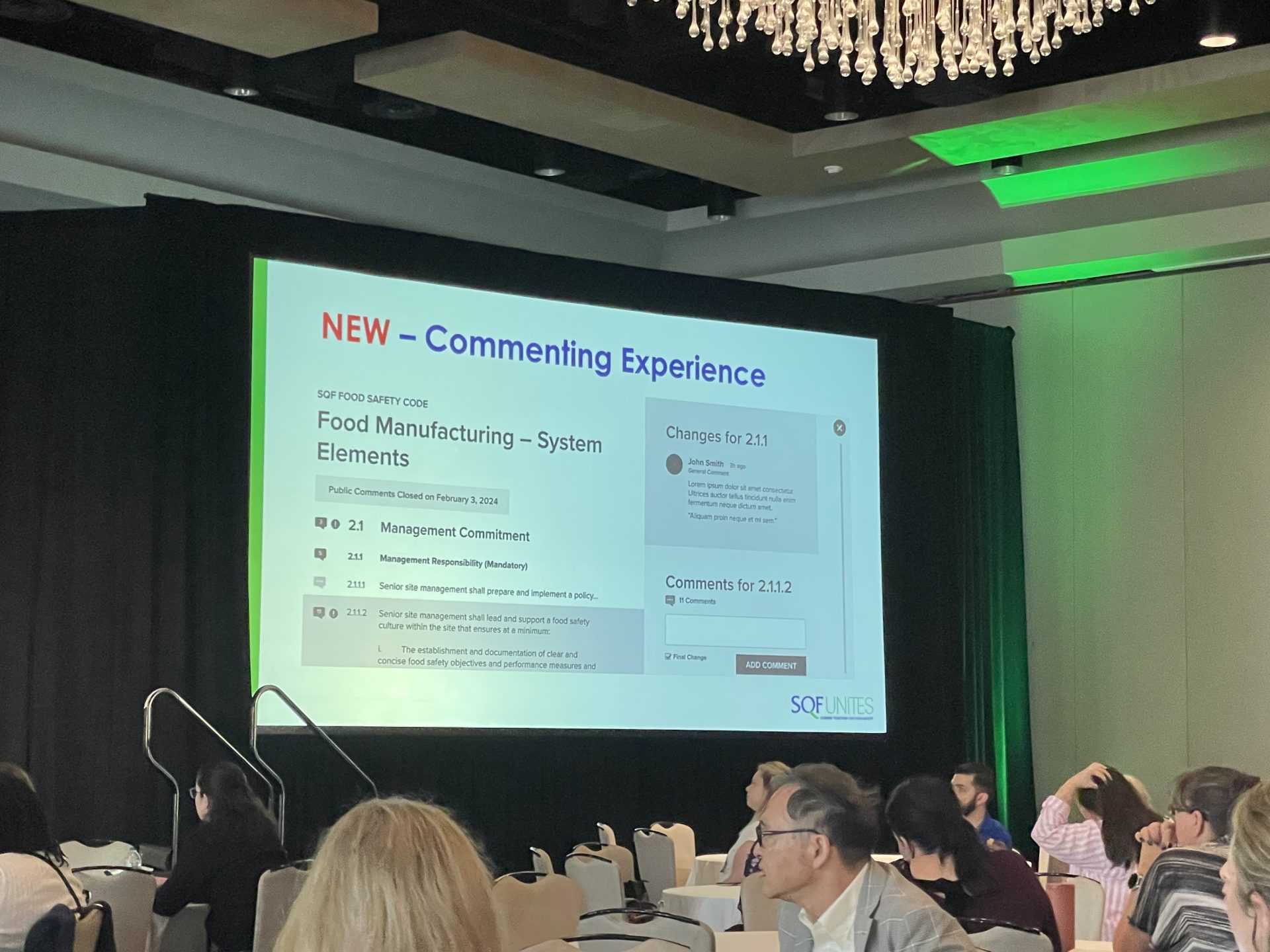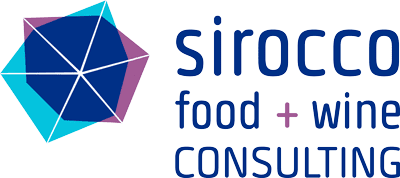This year’s SQF Unites Conference was held in New Orleans. Over 600 participants gathered to learn and connect with colleagues and industry experts. The conference agenda included discussions about SQF Edition 10. The SQF Town Hall event discussed the launch of CMX1, the new SQF Assessment database platform and a new credential for SQF practitioners. The main sessions centered on risk management, auditing best practices and the use of AI and computer solutions to achieve food safety compliance and audit management. This was also reflected in the listing of the SQF Expo. Participants interacted with a large number of exhibitors promoting tech solutions to support supplier management, auditing and standard compliance.
SQF Edition 10 planned for Q3 of 2025
SQFI presented the detailed consultative and systematic process for the release of the new edition of the SQF code (SQF Edition 10). This edition will follow the release of the GFSI Benchmarking requirements in late 2024. Based on the proposed timeline, SQFI anticipates that SQF Edition 10 will be published at the end of 2025. In terms of proposed changes, SQFI has communicated that cybersecurity will be added to food defense. We can also anticipate more prescriptive food safety culture requirements as part of the system elements. There is possibility that the scoring system will be replaced by a Pass/Fail audit rating. Other proposed changes include bringing back the SQF pre-audit and adding customer requirements to the scope of certification.
CMX1 to become the new SQF Assessment Database
The SQF Program has a global presence with over 14,000 certified sites in more than 40 countries. To ensure data security and to manage growth of the SQF third-party certification scheme, SQFI has announced the launch of a new CMX1 compliance database in May. The secure platform will ensure compliance with safety and quality standards. It will manage and save certification audits and certificates.

New Certified SQF Practitioner Credential
In collaboration with Exemplar Global, SQFI is launching a new Certified SQF Practitioner credential. Note that it is voluntary and not part of the SQF Code requirements. In order to qualify, “candidates must have at least 2 years of food industry experience. They also need a sponsor to verify their skills. Additionally, candidates must complete a HACCP course, an internal auditing course, the Implementing SQF Systems exam, and the Certified Practitioner exam.”
Paperless Food Safety
The food and beverage industry increasingly rely on paperless management systems to ensure compliance. Digitization of forms and processes make compliance more robust and comprehensive. Routine food safety checks for SQF compliance can be automated and tracked with the use of digital calendars and paperless forms and registers.
These compliance platforms often come equipped with procedure and form templates to facilitate food safety standard implementation. The process of meeting continuous improvement is assured by reminding the user that corrective actions must be taken when critical limits and food safety criteria are not met. Platforms prompt users to open Corrective Action or Non-Conforming product reports when their food safety monitoring falls outside critical limits for safety or quality.
Data retention is easy with the use of a secure computer software. Quick access to saved data helps drive data trending for risk management or CCP validation. Paperless solutions and automated systems often provide compliance dashboards that provide visual reminders of the team’s progress towards meeting KPIs. Dashboards also point to missing documentation and outstanding tasks that need scheduling. Tech solutions and automated systems make compliance to the PDCA cycle easy. Such computer programs include Provision Analytics Inc.
HACCP Training Certificate
Lead and back-up practitioners must be formally trained on HACCP to certify to SQF. Currently, SQFI accepts HACCP training certificates from providers that follow approved curriculums such as the one from the International HACCP Alliance. SQFI indicated that, in future, it will accept any recognised food safety training course covering the 12 steps of the HACCP methodology. In this regard, we are anticipating the release of Version 2 of the FSPCA curriculum (FDA Preventive Controls for Human Food) which should take place later this year or next year. SQF practitioners who need to follow FDA FSMA requirements may soon be able to meet SQF code requirements by submitting a PCQI certificate in lieu of a HACCP training certificate.
Sirocco Food & Wine Consulting offers HACCP training and Consulting services to food and beverage manufacturers in Canada and the United States. In addition, we develop Canadian PCP importer and manufacturing plans, FDA-FSVP and Preventive Control plans for human food. Our consultants are SQF certified and able to assist with SQF, Global Gap and HACCP certification. Contact us for more information and to obtain a free quote.





